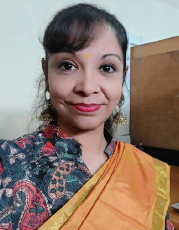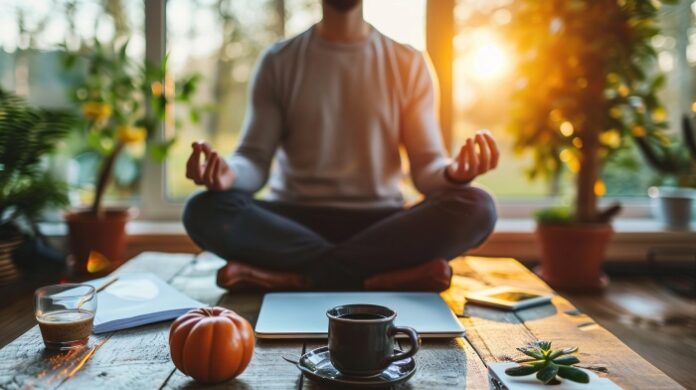Introduction
April is the month in which we celebrate World Health Day! This month heralds in the new financial year with renewed goals and energy, and so indeed is the best time to do a personal and community health and wellness check. As we all know, health is not just the absence of illness or disease but a state of physical, mental, and social well-being. Medicines and treatments are required when health is compromised, well-being is lost, and disease has struck. So why should medical science be centered only around one pillar of diagnosis and treatment? The other pillar of maintaining health and well-being or that of preventing illness is as, if not more, important in the community. In medical practice, regular diagnostic tests, vaccination, and health supplements have remained the main modes of preventive healthcare. However globally, embracing natural and holistic modalities and integrating them into one’s lifestyle is being seen and accepted to be of immense value and primary importance for health and wellness.[1]
So here are a few ‘natural medicines’ we often ignore that can help maintain and restore health and well-being. These not only help prevent and reduce the risk of ill-health and disease, but also reduce the severity of a disease and its long-term impact, and improve response to treatment, disease control, or recovery from various health conditions. As medical practitioners, let us make our patients and their families more aware of, and embrace these 5 aspects of wellness in their lifestyle.
Diet
Modern diet and eating habits leave a lot to be desired and have a direct link to many health conditions. Eating more natural food, rich in vegetables and fruits, more whole cereals and fibre, along with curd, while reducing processed, synthetic, and packaged foods, as well as high sugar foods, and aerated drinks, is the recommended way to moderate one’s diet.[2] Meals should be given adequate time, for properly tasting, chewing, and swallowing. It is important to focus on the food and enjoy meals mindfully without stress, so, it’s best to avoid taking one’s gadget or reading material to the meal table. These small changes can improve nutrition, digestion, and bowel function, as well as avoid overeating, stuffing, binging, or feeling bloated.
As the quote goes ‘water is life’, so one should drink plenty of water (consciously at least 12 glasses/day or a glass every hour of being awake),always keep oneself well hydrated, and pass urine regularly without forming a habit of holding.
Physical Activity and Breathing
Regular exercise at least 5 days a week for 30-45 minutes, like brisk walking, cycling, swimming, yoga, etc, can greatly increase health and wellbeing.[3] One must be cautious not to engage in strenuous exercise without guidance or a trainer, always ensure proper warm-ups and cool-downs, and gradually increase exercise intensity and duration over a few days or weeks. Exercise should be done till one feels active and refreshed, and not fatigued, breathless, or sore.
The breath can decide one’s physical, mental, and emotional quotient, so it is important to understand and make friends with the breath!4 One should give 15-20 minutes daily to just spend time with one’s breathing, doing or thinking nothing else, just being aware, in the present, and feeling the air going in and out in its natural rhythm. One can do simple breathing exercises like pranayama, and practice meditation and mindfulness which have been scientifically shown to improve physical and mental well-being.
Sleep
Both quantity and quality of sleep are important. At least 7-8 hours of sound sleep every night in a comfortable bed and environment is required for well-being.[5] Consistent and regular sleep and wake-up timings help to maintain sleep rhythm and quality.
Keeping a gap of a minimum of 3-4 hours between exercise schedules and sleep time, and 2-3 hours between dinner and bed-time is a good practice. At least 2 hours of natural sunlight exposure during the daytime helps the circadian rhythm better while replacing gadget exposure before sleeping with alternatives like reading, listening to music, or relaxation techniques that can enhance falling asleep.[6]
Emotional and Social Wellbeing
We often underestimate the importance of one’s mind and emotional state in resistance to and recovery from diseases.[7]‘There is no path to happiness….. happiness is the path to health and a fulfilled life’. One meaningful relationship, and time spent with family and positive people exuding and sharing love, warmth, and a laugh, is way better thanincreasingly engaging with,prioritizing, or getting obsessed andunduly disturbed by social media or the artificial virtual world.Spending some time daily with nature in green spaces, especially early mornings, or taking nature breaks can help one rejuvenate both mentally and physically.[8]
The 3 important aspects of attitude: gratitude, acceptance, and hope make one positive and exude positivity to others.Having a purpose in life, however small but meaningful, gives the reason to start the day and the strength to make it to the next day.[9]But above all self-awareness and mindfulness by being in the present moment canreduce stress, emotional disturbance, and pain.[10]
Art forms have evolved in our culture as a great source of joy and bliss, transcending boundaries, and helping us connect with our inner being.[11] These can contribute positively to health and well-being. Music, dance, theatre, reading, writing, poetry, painting-drawing, pottery, crafts, gardening,or anything absorbing or creative, can take away day-to-day stress, help in feeling peaceful, and enhance mindfulness.
Hygiene
As they say, Cleanliness is Godliness!Maintaining self-cleanliness and hygiene, as well as clean surroundings at home and in the community, not only reduces illness and the spread of disease but also improves positivity and productivity.[12]Regular exposure to sun light and ventilating one’s home with fresh air daily is of great value in maintaining a healthy home environment.
Spreading awareness to stop littering or throwing garbage, and not smoking and spitting in public places, as well as recommending vehicles to undergo regular pollution control, can create a safer healthy place of living for all. It is never too late to modify one’s lifestyle and embrace the path towardhealth and well-being…..
References
- Craig C. Design for health: a holistic approach, Design for Health, 2022; 6:2, 135-137.Habehh H, Gohel S. Machine Learning in Healthcare. Curr Genomics. 2021 Dec 16;22(4):291-300.
- Cena H, Calder PC. Defining a Healthy Diet: Evidence for The Role of Contemporary Dietary Patterns in Health and Disease. Nutrients. 2020 Jan 27;12(2):334.
- European Lung Foundation. Your lungs and exercise. Breathe 2016 Mar;12(1):97-100.
- Fincham, G.W., Strauss, C., Montero-Marin, J. et al. Effect of breathwork on stress and mental health: A meta-analysis of randomized-controlled trials. Sci Rep 2023; 13: 432.
- Ramar K, Malhotra RK, Carden KA, Martin JL, Abbasi-Feinberg F, Aurora RN, et al. Sleep is essential to health: an American Academy of Sleep Medicine position statement. J Clin Sleep Med. 2021 Oct 1;17(10):2115-2119.
- Hale L, Kirschen GW, LeBourgeois MK, Gradisar M, Garrison MM, Montgomery-Downs H, Kirschen H, McHale SM, Chang AM, Buxton OM. Youth Screen Media Habits and Sleep: Sleep-Friendly Screen Behavior Recommendations for Clinicians, Educators, and Parents. Child Adolesc Psychiatr Clin N Am. 2018 Apr;27(2):229-245.
- Stewart-Brown S. Emotional wellbeing and its relation to health. Physical disease may well result from emotional distress. BMJ. 1998 Dec 12;317(7173):1608-9.
- Barton J, Rogerson M. The importance of greenspace for mental health. BJPsych Int. 2017 Nov 1;14(4):79-81.
- Kim ES, Shiba K, Boehm JK, Kubzansky LD. Sense of purpose in life and five health behaviors in older adults. Prev Med. 2020 Oct;139:106172.
- Bartlett L, Buscot MJ, Bindoff A, Chambers R, Hassed C. Mindfulness Is Associated with Lower Stress and Higher Work Engagement in a Large Sample of MOOC Participants. Front Psychol. 2021 Sep 10;12:724126.
- Wang S, Mak H.W, Fancourt D. Arts, mental distress, mental health functioning & life satisfaction: fixed-effects analyses of a nationally-representative panel study. BMC Public Health 2020; 20: 208.
- Aiello AE, Larson EL, Sedlak R. Hidden heroes of the health revolution. Sanitation and personal hygiene. Am J Infect Control. 2008 Dec;36(10 Suppl):S128-51.
Dr. Varsha Narayanan takes over as Chief Editor of The Indian Practitioner


We are pleased to announce that Dr. Varsha Narayanan, who until recently, served as our Section Editor, takes over as Chief Editor from this April 24 issue.Dr. Varsha Narayanan is a Consultant for Family Medicine and Holistic Health in Mumbai, India. She is an MBBS (Gold medalist), MS (Oph) from Maulana Azad Medical College, Delhi, with an IMA fellowship in Family Medicine. She is further qualified in clinical research from the Institute of Clinical Research, Mumbai and in Holistic Health from Apollo Hospital, Hyderabad.
Dr. Varsha has almost 20 years of experience in medical practice in clinics and hospitals, as well as in health and pharmaceutical research. She has headed key drug development projects and advised many pharmaceutical companies. She has done acclaimed work in diverse medical and therapy areas through real world data generation, comparative clinical studies, developing treatment consensus and presenting-reviewing pharmacotherapy concepts and medicine combinations. Dr. Varsha is a speaker and writer at various health forums and medical conferences. She has given talks on healthcare through FM radio, TV and NGOs apart from conducting workshops and webinars on health awareness, family health etc. She is the Founder of Dr. Varsha’s Health Solutions, an online interactive platform dedicated to public health information, awareness and guidance.
During COVID pandemic, her portal gave free guidance to more than 20,000 people monthly, not only in India but throughout the world. Her platform has also brought together several specialists and experts from top hospitals across the country to educate and guide people on several specific health issues. She was also awarded COVID warrior by the International Chamber of Professional Education and Industry. She is also part of the Mumbai COVID Mission 2021 group. She is an expert with the medical cell of the National Health Authority, Government of India. She is the recipient of Global Achiever’s Award (Healthcare) 2021.
Dr Varsha Narayanan is the Chief Editor of The Indian Practitioner. She is Consultant for Family Medicine and Holistic Health.
Email: info@drvarsha.com
We welcome Dr. Narayanan to our team and look forward to enrich
The Indian Practitioner for the benefit of our readers.























